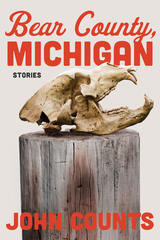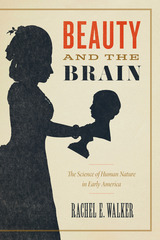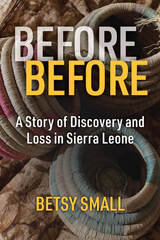3 books about Hofer, Matthew
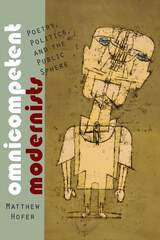
Omnicompetent Modernists
Poetry, Politics, and the Public Sphere
Matthew Hofer
University of Alabama Press, 2022
An innovative exploration of early twentieth-century avant-garde poetry’s relationship to the public sphere
“It is difficult / to get the news from poems / yet men die miserably every day / for lack / of what is found there,” as the poet William Carlos Williams memorably declared. In Omnicompetent Modernists: Poetry, Politics, and the Public Sphere, Matthew Hofer examines, through a multilayered literary critique of interwar modernist poetry, what it might mean to get the news, and more, from a poet.
Using pragmatist ideas about the public sphere as a tool, Hofer reveals how Langston Hughes, Ezra Pound, and Mina Loy sought to use literature to both express and enable thought. In Hughes, Pound, and Loy, Hofer attends to poets whose work vigorously imagined possible new relationships between language, thinking, and public society. Each poet had different goals and used different methods, but all found both inspiration and encouragement in popular political theory. Hughes advocated for a more just vision of color and class in the United States. Pound sought to condemn those whom he associated with public harm, linguistically, socially, economically, and politically. Loy championed the “psycho-democratic” representation of women, in both public and private life.
Although Hughes, Pound, and Loy are rarely considered together, what unites these three writers is how each reconceived the public realm, and revolutionized aesthetic form to articulate those visions. Hofer combines sharp intellectual historiography with rigorous literary criticism and the result is a study that reinvigorates both the poems and poets under consideration and speaks to the immense power of language in manipulating public opinion—with pertinent implications for the politics of the present.
“It is difficult / to get the news from poems / yet men die miserably every day / for lack / of what is found there,” as the poet William Carlos Williams memorably declared. In Omnicompetent Modernists: Poetry, Politics, and the Public Sphere, Matthew Hofer examines, through a multilayered literary critique of interwar modernist poetry, what it might mean to get the news, and more, from a poet.
Using pragmatist ideas about the public sphere as a tool, Hofer reveals how Langston Hughes, Ezra Pound, and Mina Loy sought to use literature to both express and enable thought. In Hughes, Pound, and Loy, Hofer attends to poets whose work vigorously imagined possible new relationships between language, thinking, and public society. Each poet had different goals and used different methods, but all found both inspiration and encouragement in popular political theory. Hughes advocated for a more just vision of color and class in the United States. Pound sought to condemn those whom he associated with public harm, linguistically, socially, economically, and politically. Loy championed the “psycho-democratic” representation of women, in both public and private life.
Although Hughes, Pound, and Loy are rarely considered together, what unites these three writers is how each reconceived the public realm, and revolutionized aesthetic form to articulate those visions. Hofer combines sharp intellectual historiography with rigorous literary criticism and the result is a study that reinvigorates both the poems and poets under consideration and speaks to the immense power of language in manipulating public opinion—with pertinent implications for the politics of the present.
[more]
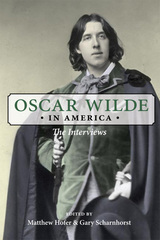
Oscar Wilde in America
The Interviews
Edited by Matthew Hofer and Gary Scharnhorst
University of Illinois Press, 2013
Better known in 1882 as a cultural icon than a serious writer, Oscar Wilde was brought to North America for a major lecture tour on Aestheticism and the decorative arts. With characteristic aplomb, he adopted the role as the ambassador of Aestheticism, and he tried out a number of phrases, ideas, and strategies that ultimately made him famous as a novelist and playwright. This exceptional volume cites all ninety-one of Wilde's interviews and contains transcripts of forty-eight of them, and it also includes his lecture on his travels in America.
[more]
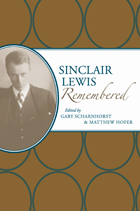
Sinclair Lewis Remembered
Gary Scharnhorst
University of Alabama Press, 2012
Sinclair Lewis Remembered is a collection of reminiscences and memoirs by contemporaries, friends, and associates of Lewis that offers a revealing and intimate portrait of this complex and significant Nobel Prize–winning American writer.
After a troubled career as a student at Yale, Sinclair Lewis turned to literature as his livelihood, publishing numerous works of popular fiction that went unnoticed by critics. With the 1920s, however, came Main Street, Lewis’s first critical success, which was soon followed by Babbitt, Arrowsmith, Elmer Gantry, and Dodsworth—five of the most influential social novels in the history of American letters, all written within one decade.
Nevertheless, Lewis’s Nobel Prize for Literature in 1930 led to controversy. Writers such as Theodore Dreiser, William Faulkner, and Thomas Mann expressed their dissent with the decision. Unable to match his previous success, Lewis suffered from alcoholism, alienated colleagues, and embraced unpopular political positions. The nadir for Lewis’s literary reputation was Mark Schorer’s 1961 biography, Sinclair Lewis: An American Life, which helped to legitimize the dismissal of Lewis’s entire body of work.
Recent scholarly research has seen a resurgence of interest in Lewis and his writings. The multiple and varied perspectives found in Sinclair Lewis Remembered, edited by Gary Scharnhorst and Matthew Hofer, illustrate uncompromised glimpses of a complicated writer who should not be forgotten. The more than 115 contributions to this volume include reminiscences by Upton Sinclair, Edna Ferber, Alfred Harcourt, Samuel Putnam, H. L. Mencken, John Hersey, Hallie Flanagan, and many others.
[more]
READERS
Browse our collection.
PUBLISHERS
See BiblioVault's publisher services.
STUDENT SERVICES
Files for college accessibility offices.
UChicago Accessibility Resources
home | accessibility | search | about | contact us
BiblioVault ® 2001 - 2025
The University of Chicago Press


